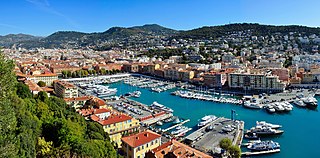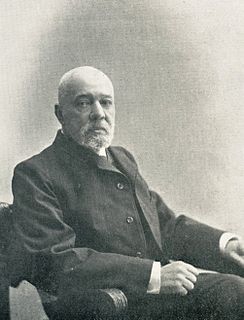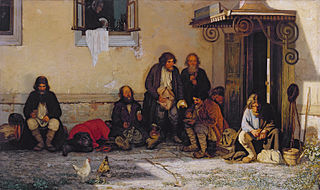
Gleb Ivanovich Uspensky, was a Russian writer, and a prominent figure of the Narodnik movement.

"The Lady with the Dog" is a short story by Anton Chekhov. First published in 1899, it describes an adulterous affair between Dmitri Dmitritch Gurov, an unhappily married Moscow banker, and Anna Sergeyevna Von Diderits, a young married woman, an affair which begins while both are vacationing alone in the Crimean sea resort of Yalta. The story comprises four parts: part I describes the initial meeting in Yalta, part II the consummation of the affair and the remaining time in Yalta, part III Gurov's return to Moscow and his visit to Anna's town, and part IV Anna's visits to Moscow. This is one of Chekhov's most famous pieces of short fiction. Vladimir Nabokov, for instance, considers it as one of the greatest short stories ever written.
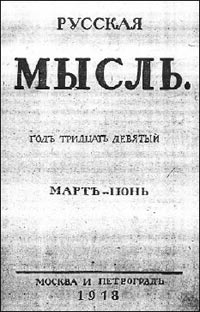
Russkaya Mysl was one of Russia's most popular magazines of the late 19th and early 20th centuries. It was founded in Moscow in 1880 by Vukol Lavrov, closed in 1918 by Bolsheviks, resurrected abroad first in Sofia, then Prague and in Paris. In 1927 Russkaya Mysl closed for good.
"Ward No. 6" is an 1892 short story by Anton Chekhov.
Three Years is an 1895 novella by Anton Chekhov originally published in the January and February 1895 issues of Russkaya Mysl. At 130 pages it is Chekhov's second-longest narrative. The story takes a negative position on the progress of society, featuring individuals of the merchant and factory owner class and their workers, without offering political solutions.
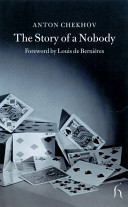
The Story of an Unknown Man, translated also as The Story of a Nobody and An Anonymous Story, is an 1893 novella by Anton Chekhov first published by Russkaya Mysl, in Nos. 2 and 3 1893 issues. In a revised version Chekhov included into Volume 6 of his Collected Works, published by Adolf Marks in 1899–1901.

Viktor Alexandrovich Krylov was a Russian playwright, theatre critic, librettist, Imperial Theatres official and one of the major contributors to the Brockhaus and Efron Encyclopedic Dictionary.

"The Huntsman" is an 1885 short story by Anton Chekhov.
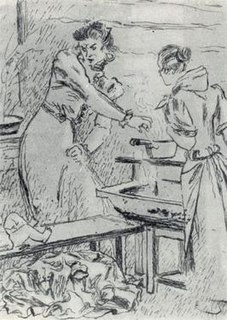
"In the Ravine" is a 1900 story by Anton Chekhov first published in the No.1, January issue of Zhizn magazine.
"Peasant Wives" is an 1891 short story by Anton Chekhov.
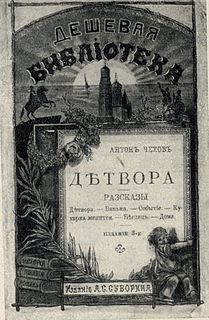
"Children" is an 1886 short story by Anton Chekhov.

"About Love" is 1898 a short story by Anton Pavlovich Chekhov. The third and final part of the Little Trilogy, started by "The Man in the Case" and continued by "Gooseberries". It was first published in the August 1898 issue of Russkaya Mysl, and later included into Volume XII of the second, 1903 edition of the Collected Works by A.P. Chekhov, published by Adolf Marks.
"Ariadne" is an 1895 short story by Anton Chekhov.

"The House with the Mezzanine" is an 1896 short story by Anton Chekhov, subtitled "An Artist's Story".
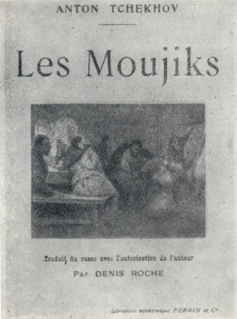
"Peasants" is an 1897 novella by Anton Chekhov. Upon its publication it became a literary sensation of the year, caused controversy but in retrospect is regarded as one of Chekhov's masterpieces.
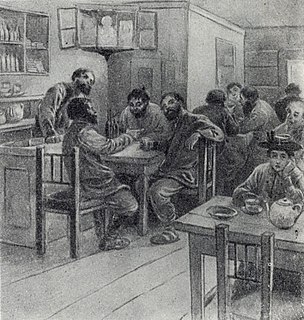
"In the Cart" is an 1897 short story by Anton Chekhov, also translated as "The Schoolmistress".

"The Man in the Case" is an 1898 short story by Anton Chekhov, the first part of what has been later referred as The Little Trilogy, along with "Gooseberries" and "About Love".

"Gooseberries" is an 1898 short story by Anton Chekhov, the second one in what has later become known as 'The Little Trilogy', along with "The Man in the Case" and "About Love".
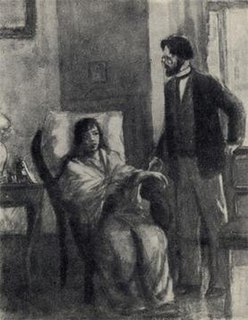
"A Doctor's Visit" is an 1898 short story by Anton Chekhov, also translated as "A Case History".

"The Bishop" is a 1902 short story by Anton Chekhov, first published in the April 1902 issue of Zhurnal Dlya Vsekh. The story, telling about the last days of a terminally ill priest, in many ways reflects the psychological state of the author, who was at the time full of premonitions of his own inevitable demise, and in that respect is considered to be partly autobiographical.





